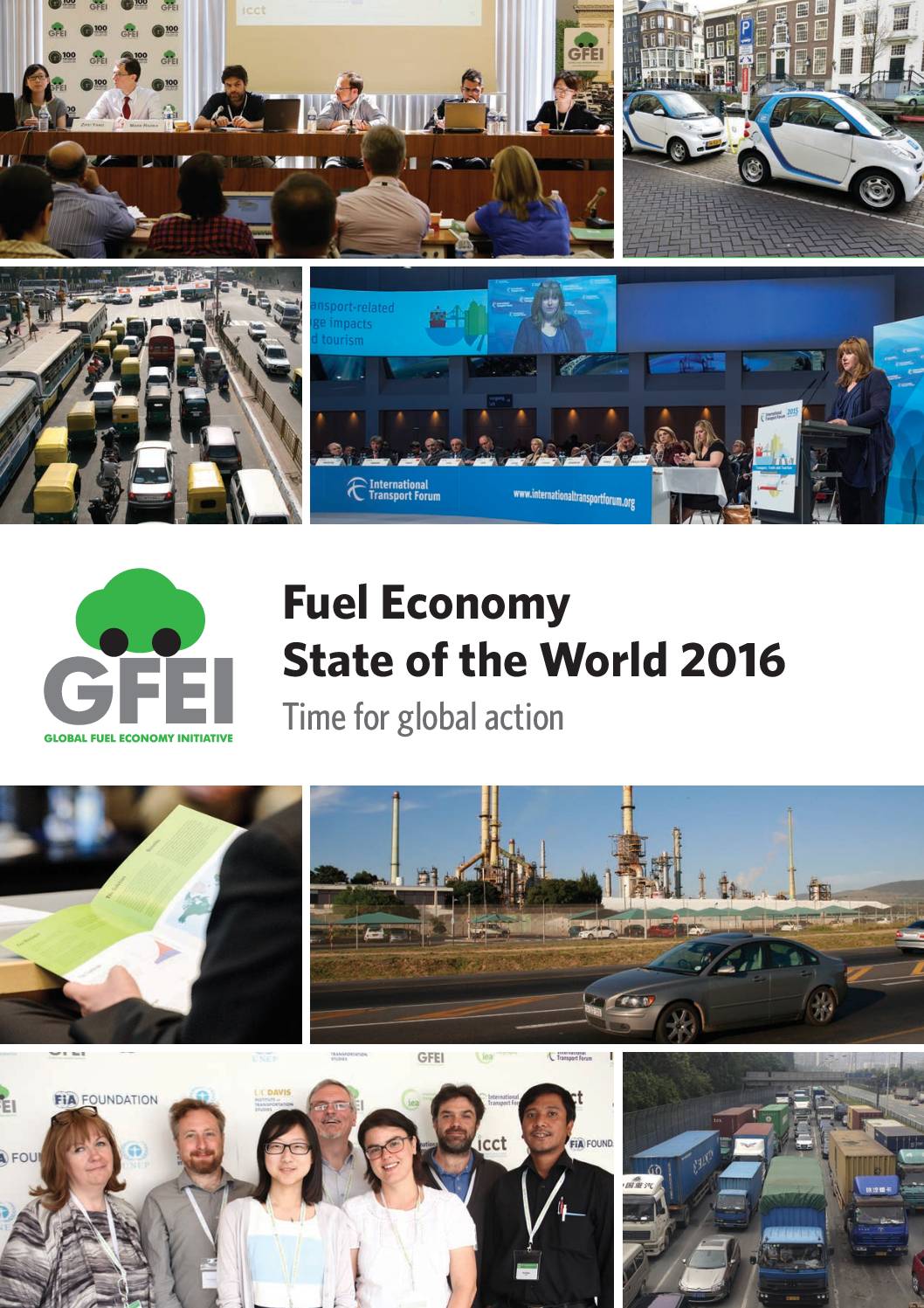Vehicles play a vital role in our economic and social prosperity, connecting people, goods and places. However, to prevent dangerous climate change the vehicles of the future must be more ecient and less polluting. The Global Fuel Economy Initiative (GFEI) brings together technical and policy experts to show how to achieve this and to support governments and the private sector to make this happen. Our work is focused around a series of targets to significantly improve vehicle fuel economy globally. These include a 50% reduction in the average fuel consumption (Lge/100km) of all light duty vehicles in use in 2050, compared to a 2005 baseline. To achieve this, all new cars sold and vans must reach a similar target by 2030. Our new ‘100 for 50by50’ campaign aims to rapidly expand our impact by extending the number of countries committing to improve fuel economy to one hundred.
This report provides an overview of the state of the world of fuel economy policy today and its potential benefits in the future. By 2050, up to 33 Gt of CO2 and almost $8 trillion could be saved worldwide, if the GFEI target of doubling fuel economy of light duty vehicles was turned into reality. GFEI tracks the achievements so far – between 2005 and 2013 fuel economy of new cars improved by 2% per year globally – and compares them to our target: global fuel economy is improving, but not at the necessary pace.
With the support of GFEI, 27 developing countries are now at various stages of developing fuel economy policies and more will be joining in the future. This report summarises results from the latest events and gives insights in the most relevant fuel economy related work from our partner organizations. Light duty vehicle fuel economy improvement is off to a good start – with policies already adopted the world is about half the way to the 2030 GFEI target. To finally achieve it, the next three to five years are critical, and GFEI will work hard to do so. GFEI is also broadening its scope. The coming year will see the partnership getting more engaged in heavy duty vehicle fuel economy policy development, the promotion of electric vehicles and a truly independent vehicle fuel economy and pollutant testing scheme – the “Green NCAP”.
Share this

Sectors: Cross cutting, Equipment and appliances, Transport
Country / Region: Global
Tags: assessment of the status quo, baseline, climate change, corporate reporting, fuel economy, global climate, impacts on systems and sectors, lighting, targetsKnowledge Object: Publication / Report
Published by: FIA Foundation
Publishing year: 2016
Author: FIA Foundation
